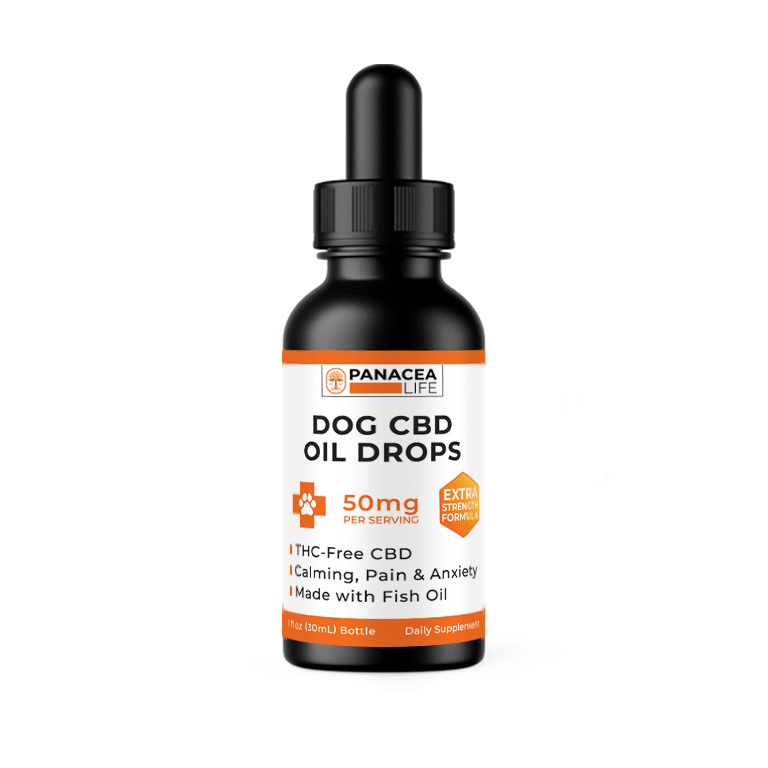Have you thought about using cannabidiol (CBD) for your pet? CBD may benefit your pets, such as a dog or a cat, in many different ways. However, you may have noticed your pet’s veterinarian has not recommended it, and they may even be unwilling to talk about it. Why is that? It is not because they do not believe it could help; in fact, many vets believe it can. Instead, it has to do with antiquated laws and the murky waters surrounding them. In this article, we will elaborate on why veterinarians are hesitant to talk about CBD for your pet.
What is CBD?
If you already know what CBD is and how it is made, feel free to move on to the next section. But for those of you who are new, this is good to know.
CBD is short for cannabidiol. It is one of 113 different cannabinoids that are found in the cannabis plant. It was first discovered and published in the Journal of the American Chemical Society in 1940. Later on, scientists were able to isolate CBD from the cannabis plant further, completely removing the tetrahydrocannabinol (THC), the psychoactive component of cannabis. One of the most common questions is, “will CBD make me high?” The answer to that is no. Since there is little to no THC in CBD oil, you do not have to worry about any psychoactive effects (such as feeling high).

How CBD works is a little more complicated to explain. In most mammals, such as humans, dogs, cats, and rats, there is a particular system called the endocannabinoid system (ECS) that mediates CBD effects in the body. This system is used to regulate many different functions, including sleeping, pain, the immune system, appetite, and more. The body naturally produces endocannabinoids, which are neurotransmitters that bind to cannabinoid receptors. Recent studies have shown that CBD may work in the body by affecting the endocannabinoid receptor activity. It does not bind to the neurotransmitters but impacts them indirectly.
Other studies have concluded that CBD can help with anandamide signaling. Anandamide is known as the “bliss molecule.” It is said to make you feel happier and more motivated. Anandamide contributes to many other mechanisms in the body, such as pain management, appetite, fertility, mood, and more.
CBD for your pet
While CBD has been widely studied in humans recently, research on pets has been limited. There are many published studies for rats as they are often used as test subjects. However, not as many for more common pets like for dogs or cats, though they do exist.

-

Horse Treats Mint 50mg CBD
$49.95 Add to cart -

Dog CBD Oil Drops
From: $14.95 Select options This product has multiple variants. The options may be chosen on the product page
Dogs
In 2018 a study was completed on dogs with osteoarthritis and published in the journal of Frontiers in Veterinary Science. The dogs were accessed over a two-week and four-week period. After this time, it was reported that 80% of the dogs experienced improved mobility and inflammation relief.
Another study was recently published in 2019 in the Journal of the American Veterinary Medical Association. During this study, dogs with epilepsy were split into two groups. One group was given epilepsy medicine and CBD oil, while the others were given the medication along with a placebo. While both groups had a decrease in incidences, the group given CBD oil had significantly fewer seizures when compared to the placebo group.
Cats
The research on CBD for cats is much more limited. Studies have shown that CBD may help most mammals, birds, reptiles, and fish. However, not many specific studies on the benefits of CBD for cats exist. One study completed in 2019 compared dosing in cats compared to dogs. They found that cats seem to show lower oral absorption rates, and they also eliminate CBD much faster from their bodies than dogs. At the therapeutic dosing rate for dogs (two mg/kg), scientists found that cats show an adverse effect of excessive licking and headshaking. While this did not harm them at all, the researchers concluded that more work in cats is needed to understand the utility and absorption of CBD oil fully. With cats, it is recommended to “start low and go slow” to see how they react and find the right dosing.
Why veterinarians are hesitant to talk about CBD for your pet
If you wonder why veterinarians are reluctant to talk about CBD for your pet, we have the answer. It is not because they do not believe in it. It is because they are worried about losing their license. Unfortunately, due to the stigma of marijuana and THC, hemp and CBD went down along with it. Even though hemp and CBD do not contain any psychoactive properties, for many years, they were listed as a Schedule 1 drug by the U.S. Drug Enforcement Administration (DEA). It was not until late 2018 that the DEA allowed CBD to be removed from the Schedule 1 list with the 2018 Farm Bill. This change means that before that time, vets could be fined and potentially lose their license if they even talked about CBD with their clients.
While CBD has been removed from the Schedule 1 list, veterinarians have still been left in the dark about whether they can legally recommend CBD for your pet. Since it is still a murky area, they err on the side of caution and try to avoid discussing it altogether. There is hope on the horizon, though! In 2019, California passed law AB-2215 that directly permits veterinarians to discuss cannabis options with their clients. This has left vets feeling secure in their ability to discuss CBD oil as well, which they have been. Once other states begin to pass similar laws, you will find that your vet will be more open about talking to you about it and recommending CBD for your pet.
Recommendations and conclusion
The choice to try CBD for your pet is entirely up to you. Education is power! Read more on this site about the potential benefits and see if it could be right for your pet. As far as administering goes, a 2018 study found that CBD oil given orally was best for dogs. Dosing was tested at levels of 75-mg and 150-mg. Both were found to be safe, with no adverse side effects. More research needs to be done to understand dosing for cats.
In conclusion, it is not that your vet does not want to talk to you about CBD for your pet, it is just that they are worried about the laws. Once the rest of the laws catch up with the recently passed 2018 Farm Bill, your vet may be more open with discussing CBD with you.












